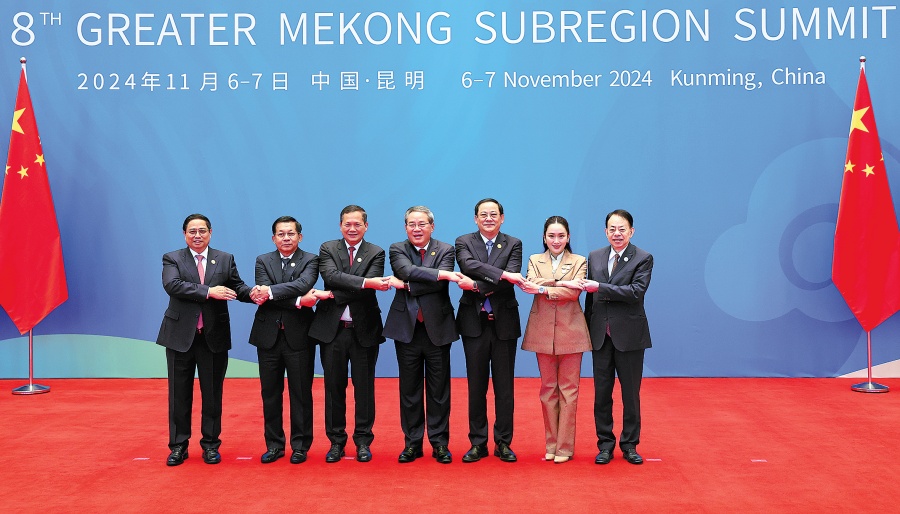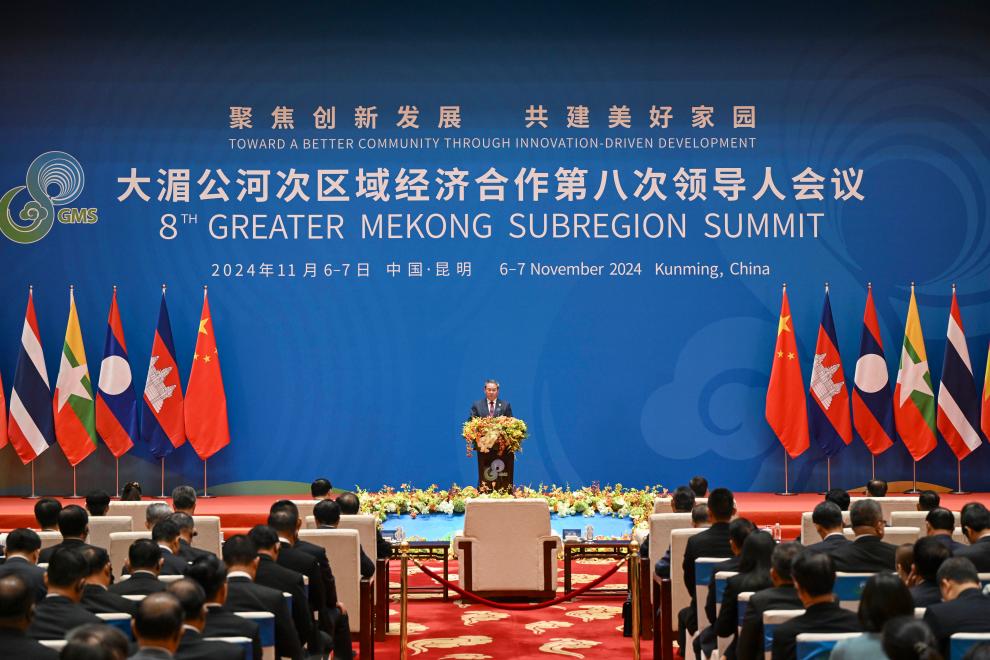
Premier Li Qiang called on Thursday for greater unity and coordination among countries of the Greater Mekong Subregion to further promote pragmatic cooperation in various fields, in order to achieve shared growth and contribute to regional and global peace, development and prosperity.
Li made the remarks when attending the eighth Greater Mekong Subregion Summit in Kunming, Yunnan province, along with the heads of government of Cambodia, Laos, Myanmar, Thailand and Vietnam. Masatsugu Asakawa, president of the Asian Development Bank, was also in attendance.
The premier emphasized that the GMS mechanism has been a crucial platform for cooperation and development between China and the five Mekong nations for more than 30 years.
Amid global turbulence and transformation, the GMS countries should fully leverage the strength of their economic complementarity to deepen practical cooperation in various fields and join hands on the path toward common development, he said.
The premier underlined the need to uphold open cooperation to advance higher-level two-way opening-up, improve the open regional economic structure, and create a more efficient and dynamic megamarket.
It is important to promote high-quality Belt and Road cooperation, carry out the Regional Comprehensive Economic Partnership effectively, and step up the signing and implementation of the agreement on the Version 3.0 Free Trade Area between China and the Association of Southeast Asian Nations to facilitate trade and investment, he said.
ALSO READ: Chinese premier expects China, ADB to boost cooperation
Li called for advancing planning, construction and upgrading of the power grids in the region, deepening partnership in the new energy battery, automobile and photovoltaic industries, and expanding cooperation in emerging industries including clean energy, intelligent manufacturing, big data and smart cities, in order to foster new drivers for regional growth.

While strengthening infrastructure connectivity in terms of roads, railways and ports, which he called "hard connectivity", Li said that countries in the region should also intensify "soft connectivity" in areas such as policies, laws, regulations, standards and rules, facilitate cross-border payments and local currency settlement, and speed up regional economic integration.
China has decided to issue "Lancang-Mekong visas" to nationals of the five countries, granting eligible business personnel multiple-entry visas valid for five years, he said.
The premier emphasized the importance of upholding true multilateralism, and called for closer cooperation with the United Nations, the ADB, the Asian Infrastructure Investment Bank and other institutions, to effectively implement the UN's 2030 Agenda for Sustainable Development.
The leaders of the Mekong countries highly praised China's significant role in GMS economic cooperation, and expressed willingness to work together to enhance strategic communication, maintain open cooperation, focus on innovative development, and expand pragmatic cooperation in various fields such as trade, agriculture, connectivity, the digital economy, green development, healthcare, tourism and cultural exchanges.
The summit concluded with the adoption of the Joint Declaration of the eighth GMS Summit and the GMS Innovation Strategy for Development 2030.
READ MORE: China ready to boost friendship with Myanmar
On Thursday, Li also met with Vietnamese Prime Minister Pham Minh Chinh in Kunming.


